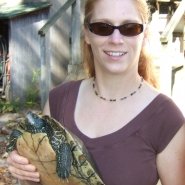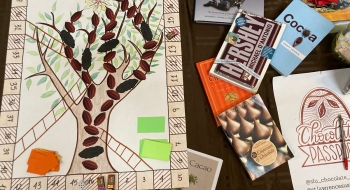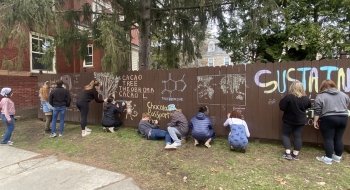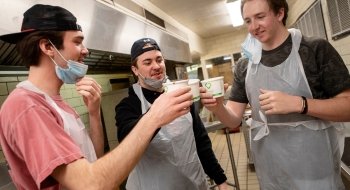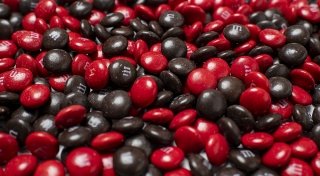
Chocolate Passport Project
The Chocolate Passport Project is a unique interdisciplinary educational and experiential course of study that will address the traditional, spiritual, and medicinal uses of Theobroma cacao, its agricultural production, the global market for chocolate, ethics, and sustainability of this market, culinary uses of chocolate, the chemistry of chocolate, and its role in the art of all cultures.
This project is made possible thanks to a generous Forrest E. Mars, Jr. Chocolate History Research Grant from Mars Wrigley.
Program and Project Goals
All Sustainability Program curriculum, including the Chocolate Passport Project, is designed to meet the following five learning goals:
- Learn to seek and implement interdisciplinary solutions to sustainability problems
- Comprehend the local and global intersections of sustainability issues
- Identify the complexities of relationships involved with sustainability issues
- Develop strategies to communicate environmental knowledge to different audiences
- Gain leadership skills in community engagement and environmental activism
Chocolate Passport Goals
- Use chocolate as a unifying element to bridge connectivity and inclusiveness among all students, faculty, and the community
- Support as many faculty as possible to explore chocolate through a highly interdisciplinary curriculum
- Provide extended learning opportunities to inspired students who can explore chocolate further through a grant program
- Produce a body of projects to celebrate learning and the joy of chocolate through a culminating Chocolate Passport Festival (end of May 2022)
Cacao Acknowledgement
We acknowledge that cacahuatl (cacao) is originally from Abya Yala and that it is part of the ancestral cultural heritage of several Pueblos Originarios such as Mayas, Incas, Olmecs, and Aztecs. Cacao is the source of livelihood for thousands of families in the global south, current, and past global political-economic structures exploit and appropriate this plant and human work while causing cultural, human, and environmental destruction. As a result, families, and cultures all over the world are also culturally and economically dependent on this plant. We seek to honor and bring light to chocolate sovereignty by educating and revaluing systems concerning values, labor protections, and economic sovereignty.
Chocolate Passport Facts
Interdisciplinary courses exploring the origins of chocolate
Cups of Cacao
Drank daily from a golden chalice by the 16th century Aztec emperor, Montezuma.
Caffeine Fix
The average serving of milk chocolate has about the same amount of caffeine as a cup of decaf coffee.
Beans Produced by One Cacao Tree
Students Engaged with the Chocolate Passport Project
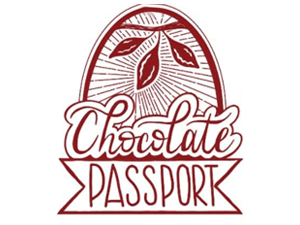
Get Social
Follow the Chocolate Passport Project on Instagram.
of Cacao Crops Lost
Cacao trees are so delicate, farmers lose one third of their crop each year.
Funded Student Research Projects
Of the Worlds Supply of Cocoa is Produced by Côte D’Ivoire
Cacao Sourcing
Most cacao farms are not owned by the companies that make chocolate.
Cocoa beans make one pound of chocolate
Sweet Success
The St. Lawrence Chocolate Passport Grant Video Report showcases the diverse and multidisciplinary approach to understanding cacoa made possible by the support of a generous grant from Forrest E. Mars, Jr. Chocolate History Research Grant from Mars Wrigley.
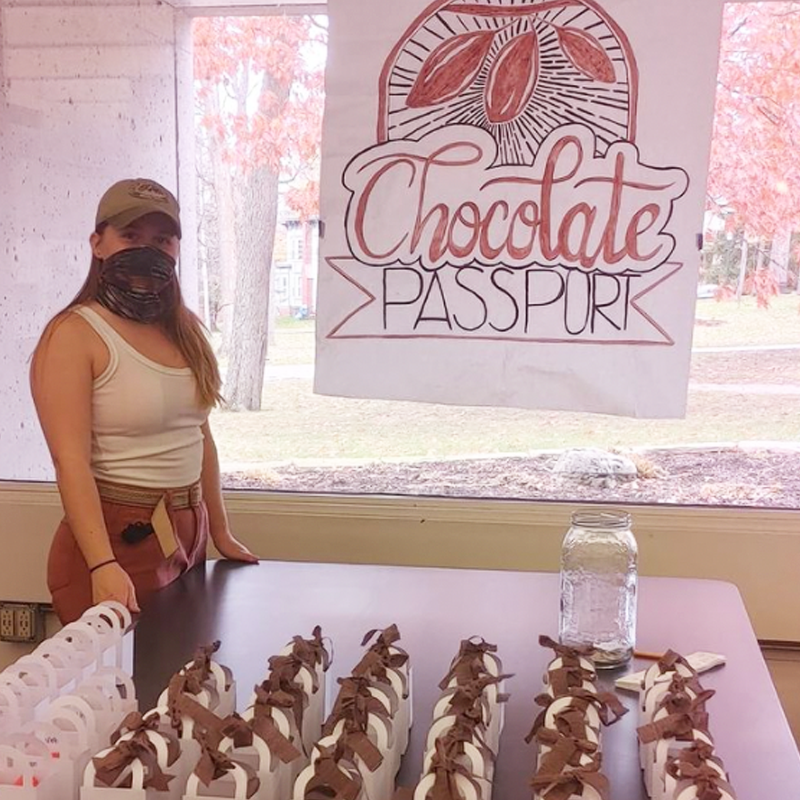
Chocolate Blind Date
During the fall 2021 semester, the Chocolate Passport team collaborated with the Barista Club to host a Blind Date event in which participants received a mystery bar of chocolate to enjoy with a free book of their choice!
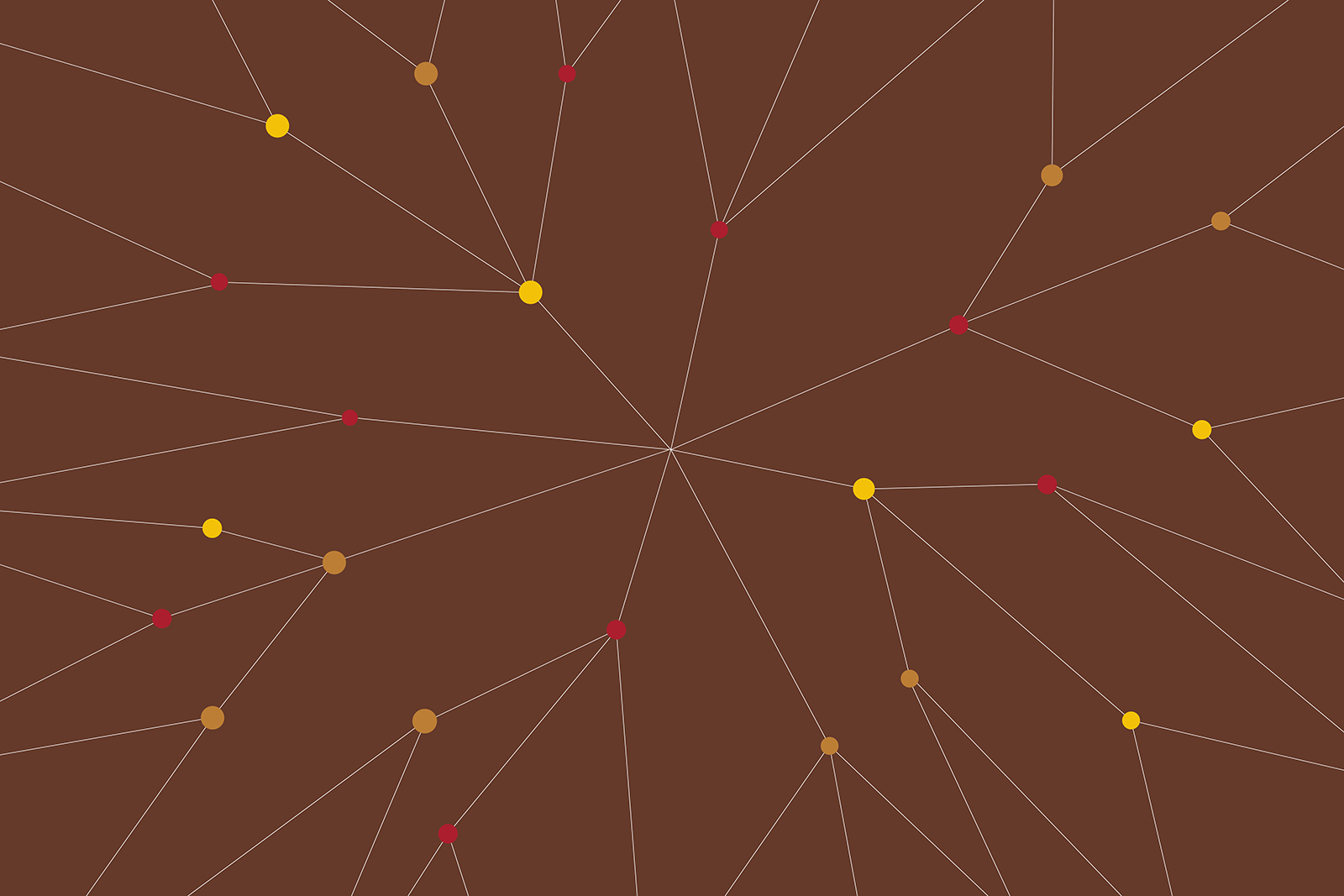
Chocolate Campus Connections
Faculty and staff members involved represent a myriad of departments including biology; history; environmental studies; performance and communication arts; film and representation studies; Caribbean and Latin American studies; anthropology; world languages, cultures, and media; government; psychology; and chemistry. The University’s Dining Services and the Richard F. Brush Art Gallery teams also plan to be involved.
Connected Courses Offered
Spring 2022
-
FRPG-2184-01 Chocolate & Our Environment (First-Year Seminar)
-
ENVS-3069SOP SophSEM: For Love Of Chocolate (Sophomore Seminar)
-
Cocoa has been cultivated for centuries and today it's a much loved indulgent confectionery. In this course, students explore the interdisciplinary nature of chocolate and sustainability. Chocolate is art, music, film, literature, spiritual, medicinal, culinary, commodity, injustice, environment, and science. Historians shed light on how chocolate changed the world. Economists show a greedy consumer-driven global chocolate market estimated at $139 billion USD, which might just vanish as scientists estimate there are less than 25 years before the plant faces extinction from climate change. This course aims to foster creativity by allowing students to share their own ideas and interests around chocolate. A multimedia research project will have independent and collaborative elements to engage the St. Lawrence community in fun and exciting ways. Students will also enhance their professional development skills through participation in both Sustainability Day and the Chocolate Passport Festival celebration.
-
Courses taught by Sara Ashpole
-
-
PSYC 326: Hormones & BehavioR
- Taught by Loraina Ghiraldi
-
FR103 and FR104: French Intermediate
- Taught by Eloise Brezault
-
CLAS 105: Introduction to Latino Studies
- Taught by Martha Chew Sánchez
-
Spanish 3037: Indigenous Peoples in Latin American Cultures
- Taught by Javier Muñoz-Diaz
Summer 2022
-
BIOLOGY: Cacao farming and chocolate making in Ecuador
- Taught by Susan Willson
Connect With Us
